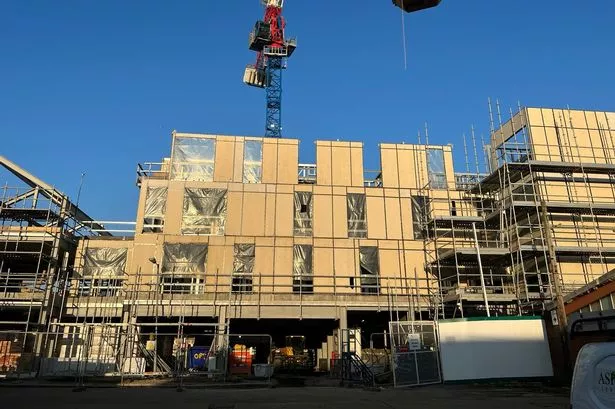It has been hailed as a realistic way for young people in Bristol to get on the housing ladder, and has played a significant role in city leaders claiming they are building more ‘affordable’ homes - but the shared ownership model is ‘drastically failing to deliver an affordable route to homeownership’.
That’s the verdict of a hard-hitting report from cross-party group of MPs on the Levelling Up, Housing and Communities (LUHC) committee, who are calling for ‘urgent and significant action’ to reform how the system works. The committee chair said the system is far too complex and for ‘too many people’ it can and has led to spiralling costs of charges, fees, maintenance expenses and repair bills over time, meaning the dream of buying part of a new home and eventually becoming a full homeowner is never realised.
Last month, Bristol Live reported on the boom in shared ownership in Bristol, with developers behind a number of schemes praising it as an accessible way for people, particularly first-time buyers, of getting on the housing ladder. Shared ownership is rapidly becoming a big model for major developments in Bristol
Read next: Shared ownership 'increasingly popular' way to beat Bristol housing crisis
Read more: New South Bristol homes up for sale with 'as little as £4,000 deposit'
It is classed as ‘affordable housing’ under planning laws, so contributes to the council’s much-publicised figures on affordable homes, but at the same time means developers don’t have to pay Community Infrastructure Levy to the council for things like better roads, schools, GP surgeries, playgrounds and parks.
Indeed, switching some major developments over to 100 per cent shared ownership has saved some developers more than a million pounds in CIL money that then doesn’t have to be paid, while not really impacting the profitability of the development as much as building other forms of affordable housing - like council homes for social rent - would do.

But older schemes that have been in place for a number of years have a range of issues, according to the LUHC committee in the House of Commons, and the system needs an overhaul. The committee commissioned a big report into the effectiveness of shared ownership and how the system really works for people.
“Shared ownership was hailed as an answer to the housing crisis especially for first-time buyers,” said the committee chair Clive Betts. “However, we have found that for too many people shared ownership becomes an unbearable reality, where a blizzard of charges and an unfair burden for maintenance and repair costs means that they are unable to afford full homeownership.
“Rising rents, hefty service charges, complex leases, disproportionate repairs and maintenance costs are experienced by too many people who take the shared ownership route. The Government needs to take clear and urgent action to tackle these issues and ensure shared ownership genuinely delivers affordable homeownership,” he added.
Changes and improvements were made to shared ownership leases in 2021 to address issues and costs and service charges, which the MPs’ report acknowledges, and says there is broad support for those changes. But those improvements do not extend to shared owners who own properties delivered under the previous Affordable Homes Programme between 2016 and 2023.
“The report highlights the risk that this will result in the emergence of a two-tier market, where older, less attractive shared ownership properties become more difficult or even impossible to sell,” a committee spokesperson warned. “The report recommends the Government explore how it can extend the improvements made to shared ownership leases from 2021 onwards to properties delivered under the 2016-2023 Affordable Homes Programme.
“Shared ownership schemes are drastically failing to deliver an affordable route to homeownership for too many people and subject buyers to rising rents, uncapped service charges, and a disproportionate exposure to repair and maintenance costs,
“The report also recommends that the Government examine how it can ensure shared owners are only ever liable for repairs and maintenance costs proportionate to the size of share they own and ensure the Regulator for Social Housing updates its Tenant Satisfaction Measures to include satisfaction with repairs and maintenance for shared owners,” he added.
There are many shared ownership schemes across Bristol, and they are increasing in number and size in the post-pandemic years, particularly as the regular open housing market has stalled. The other half of the former office complex in Hartcliffe next to Imperial Apartments is a shared ownership scheme, while the shared ownership model has boosted affordable homes numbers for Bristol City Council in other places.
Both the Old Brewery development at Ashton Gate, which is nearing completion, and the troubled Boat Yard development on the Bath Road in Totterdown, which is still more than a year away from being finished, began as regular open market apartment building projects, but switched to 100 per cent ‘affordable’ with the vast majority of the new homes marketed as shared ownership, after planning permission was awarded.






















